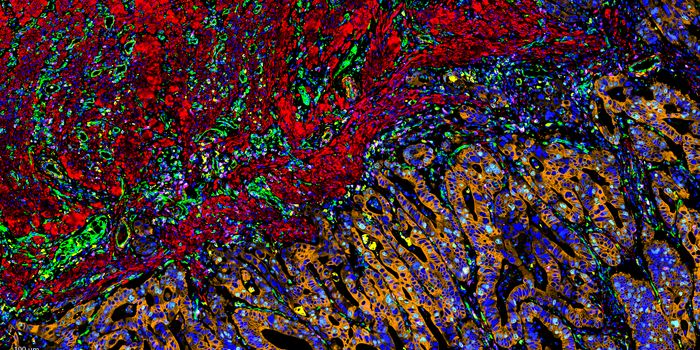This Mouth Rinse Soothes the Pain of Cancer Treatment
Oral mucositis is a condition in which the lining that covers the mouth, the oral mucosa, becomes damaged. It is “probably the most common, debilitating complication of cancer treatments,” according to the Oral Cancer Foundation. Treatments like chemotherapy and radiation can result in mouth sores, pain and infection, as well as nutritional problems tied to the inability to eat. A new study out of Texas finds using an oral rinse containing the antiseptic methylene blue is effective in treating this oral condition.
Jaideep Mehta, M.D., MBA, a pain medicine fellow at the University of Texas MD Anderson Cancer Center who was involved in the research, said “oral mucositis occurs most often in patients undergoing head and neck radiation therapy, taking multiple types of chemotherapeutic agents, or undergoing hematopoietic stem cell transplant.” He also noted the intensity of cancer treatment seems to lead to the most oral mucositis.
Mehta’s new research into the use of the mouth rinse focused on 47 patients who presented with “intractable” oral pain due to oral mucositis from cancer treatment between May 2016 and February 2018. The patients who participated used an oral rinse that was 0.5 percent methylene blue, swishing for several minutes three to six times every six hours.
The research team used a numerical rating scale to assess the participants’ baseline pain levels, as well as the pain intensity after treatment and after three weeks of the study. The patients experienced a mean pain reduction from 7.8 to 2.5 immediately after using the rinse. A total of 43 out of 47 patients experienced consistent pain relief at week three, and the majority demonstrated the greatest pain reduction after using the rinse for two days. Neither the patients’ sex, age, baseline pain scores, nor type, stage or duration of cancer affected the success of this treatment. However, patients whose oral pain was linked to stem cell therapy had the lowest response to using the rinse -- their mean pain reduction was 30 percent or less.
“We think [methylene blue’s] analgesia may be from neurotoxicity at the nerve endings in the mucous lining, as well as inhibition of nitric oxide and cytokines at some of the raw and irritated sites,” Mehta said.
Another positive aspect of this therapy is that it may prove a powerful alternative to opioid use. Other current treatments for oral mucositis include maintaining oral hygiene and topical anesthetics, which Mehta described as “very transient in their benefits.” The minimal side effects of the methylene blue rinse included temporary mouth discoloration and a burning sensation while using the rinse.
Source: Clinical Oncology










